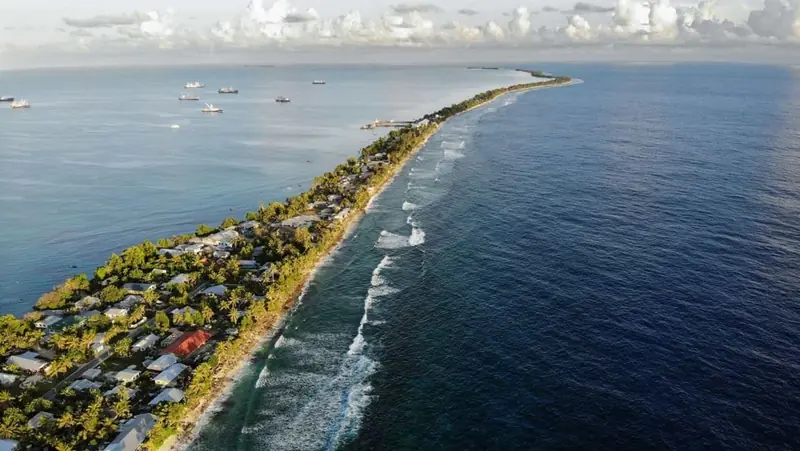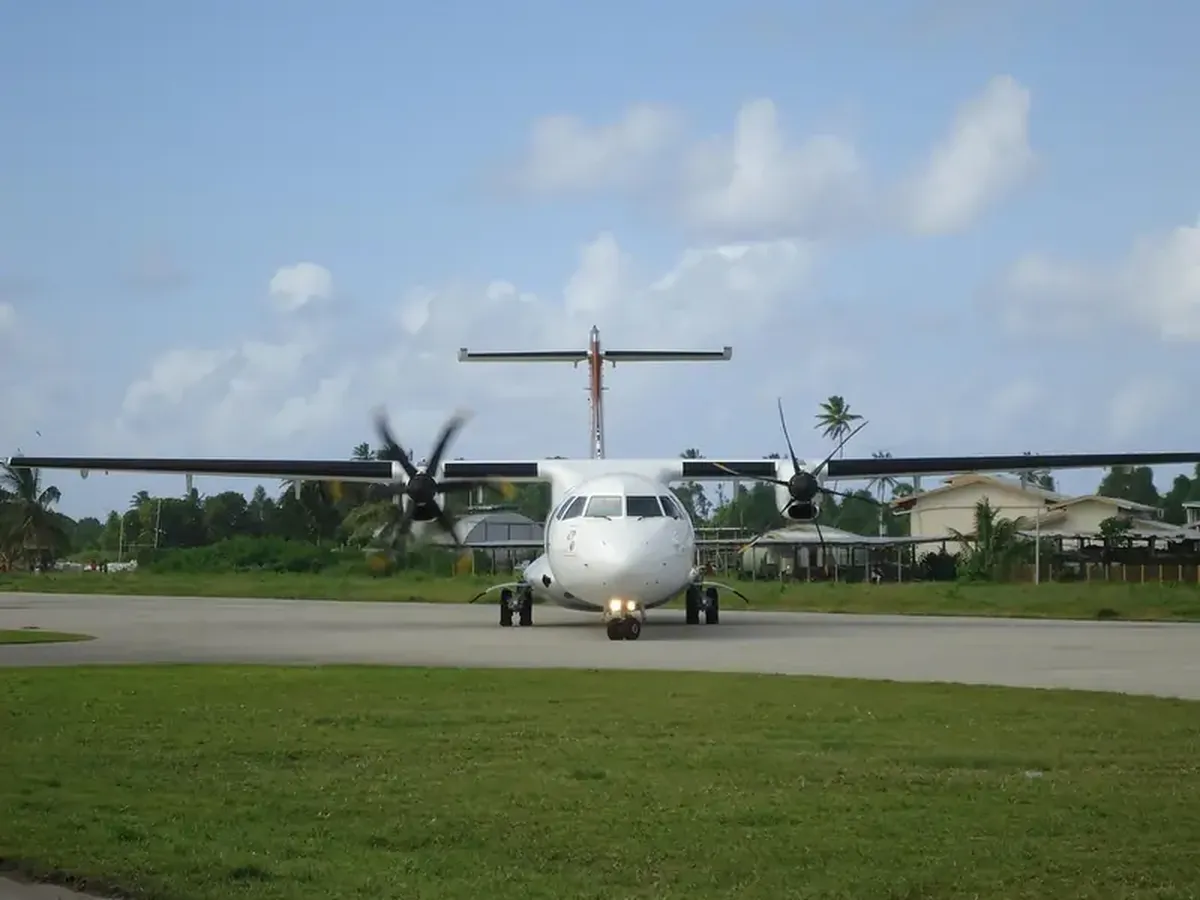
This is the story of Tuvalu, a small island nation scattered across the Pacific Ocean, located about 1,000 kilometers north of Fiji and just south of the equator. With a population of around 10,000 residents, Tuvalu covers an area of approximately 26 square kilometers. The country consists of four islands and five atolls, where community values are prioritized over official authority.
However, a serious threat looms over this small yet proud nation. In just 50 years, Tuvalu could vanish from the world map sooner than many other countries due to rising sea levels.
A Country That’s Hard to Reach
Given its remoteness and inaccessibility, the United Nations World Tourism Organization named Tuvalu the least visited country in the world in 2023. Only about 3,700 tourists make their way here each year.
There are no direct international flights to Tuvalu. From Fiji, there are only three flights a week to and from this nation, as reported by the Daily Mail.
Since traveling to Tuvalu requires significant time and money, it attracts the most adventurous tourists. When they share their experiences on social media, they often highlight the tranquility and sense of family that characterizes the local people.

But It’s Not All Sunshine and Rainbows
Experts predict that in half a century, the country could be submerged due to climate change.
In 2022, Tuvalu’s Foreign Minister Simon Kofe delivered a speech at the UN climate summit COP26, standing knee-deep in water where land once existed.
The highest point in the country is only four meters above sea level. Therefore, even a slight rise in ocean levels will result in some areas being submerged, while others will become uninhabitable.
In 2023, Australia expressed its willingness to welcome residents of the tiny island nation, offering them the opportunity to live, work, and study there. Australia also announced its intention to assist the small island state in the event of natural disasters, pandemics, and national security threats.
However, in October 2024, Tuvalu’s Prime Minister Kausea Natano published a report highlighting disproportionately high emissions from fossil fuel extraction by Commonwealth nations. “We must work together to uphold our Paris commitments to limit warming to 1.5 degrees Celsius,” the Prime Minister added.
“If major countries continue to launch new fossil fuel extraction projects, it will be a death sentence for us,” stated the Tuvalu Ministry of Foreign Affairs.

